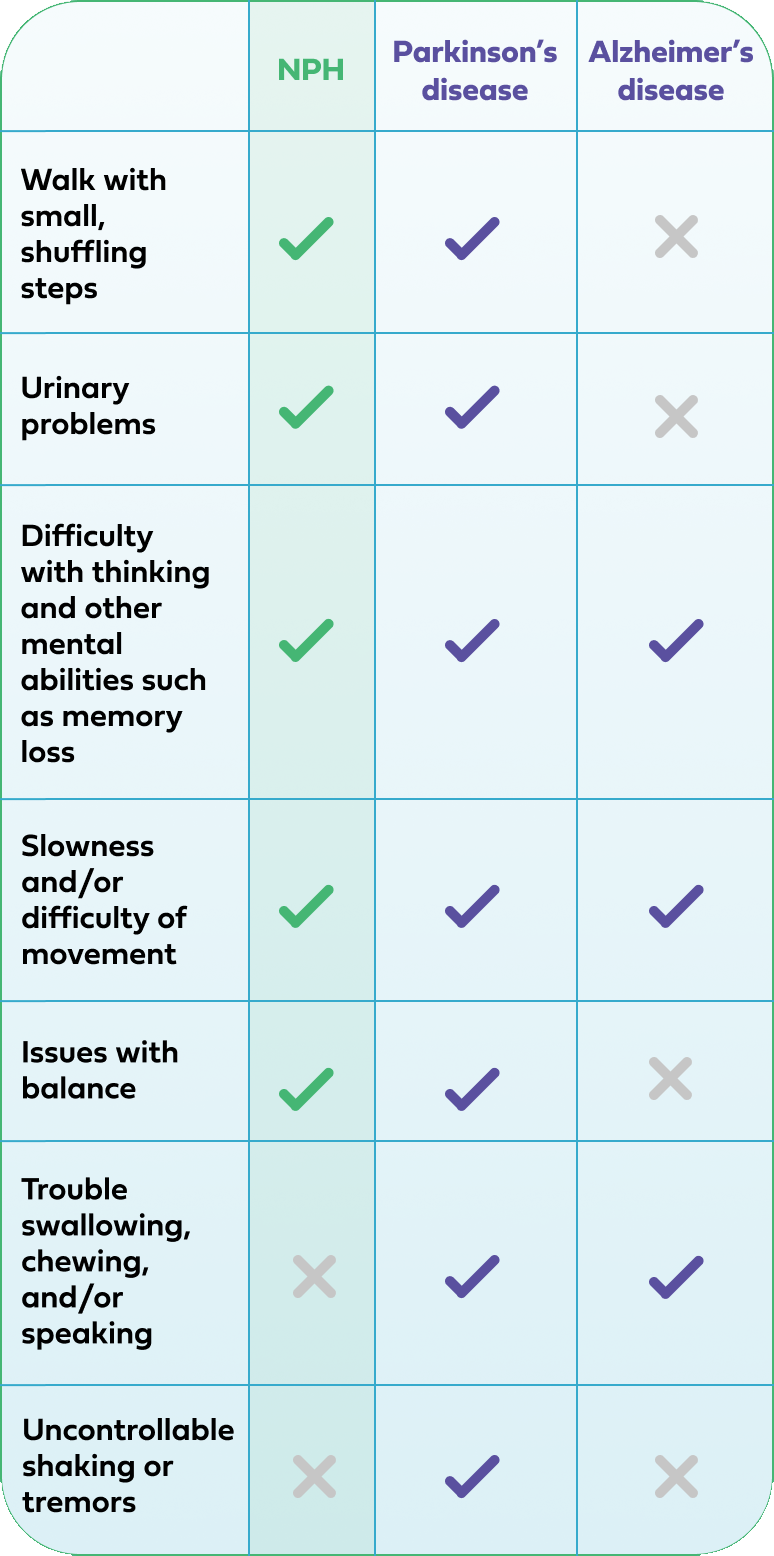
ABOUT NPH
NORMAL PRESSURE HYDROCEPHALUS
IS NOT SIMPLY A SIGN OF AGING
Normal pressure hydrocephalus, also called NPH, is an abnormal buildup of cerebrospinal fluidCerebrospinal fluid is a clear, colorless fluid that is found in the brain. It helps the brain by acting like a protective pillow and also provides nourishment and helps remove waste. in the ventricles Ventricles are large, open structures inside the brain. of the brain. This can cause the ventricles to swell and press onto the nearby brain tissue, which can lead to a variety of issues.

NPH usually affects adults 60 years of age and older, and about 800,000 people in the US have NPH. Often, NPH has no known cause.










